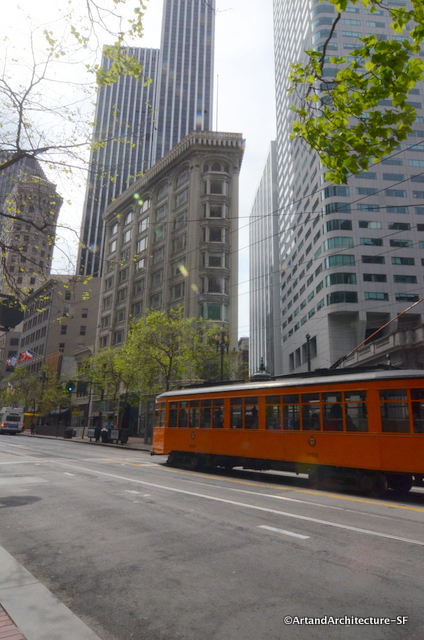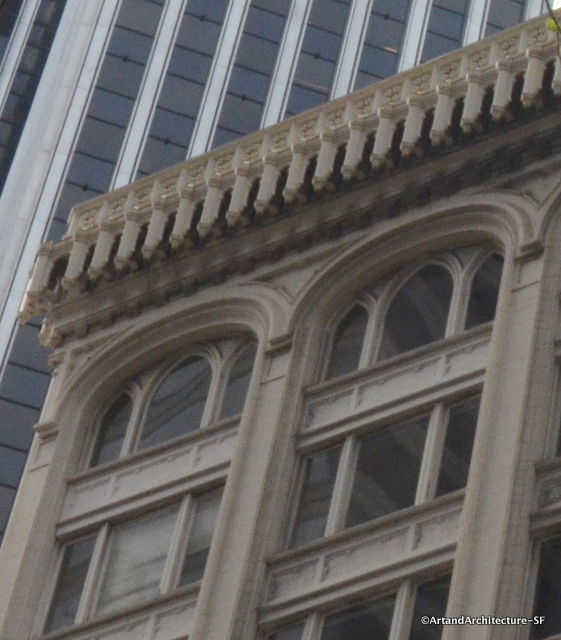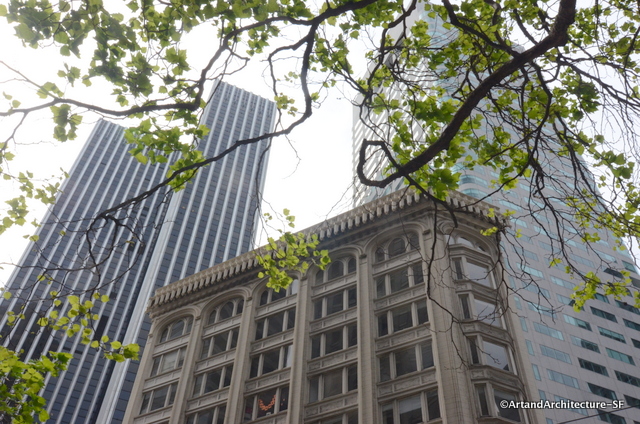Flat Iron Building
540 Market Street
Market Street / Financial District
Built in 1913 the Flatiron Building was designed by Havens & Toepke. It is one of the few, and most distinctive extant flatirons on Market Street. Flatirons were common north of Market both before and after the 1906 Earthquake and Fire, but the destruction of many of them such as the 1892 Crocker Building at Post and Market for high-rises has made them rare.
The skeletal structure of the building is well-adapted to an unusual (for San Francisco) Gothic treatment in which three-part bays are separated by thin piers of reinforced concrete scored to imitate masonry. A highly distinctive cantilevered cornice of Gothic pendants appears to be a prototype for Willis Polk’s 1917 Hallidie Building one block west. Described in 1913 as “pure English Gothic,” the medieval ornament also is used for interior railings, grilles, and elevator doors.
The most well known Flatiron in San Francisco is most likely the The Sentinal in North Beach, but since this is actually called The Flatiron Building the two are often confused.
Flatiron buildings are among the earliest skyscrapers. Their triangular shape was determined by real estate parcels created by diagonal streets, such as Market Street, that sliced through streets designed on a grid. They were named for their resemblance to clothes irons of the period.
The most famous flatiron building is the Fuller Building, of New York City and generally considered that city’s first skyscraper. It was designed by Daniel H. Burnham and built in 1902.
Charles I. Havens was born in New York in 1849 and arrived in California in 1856. Havens served for twelve years as City Architect of San Francisco, designing many of the early schools, none of which survive. He died in 1916.
William H. Toepke was born in California San Francisco July 12, 1870. He attended public schools and then entered the office of William Mooser in 1886 to study architecture. Four years later he became an employee of C.I. Havens and formed a partnership with Havens in 1897 that continued until 1915. Toepke died in 1949.



We have a wonderful red brick flat-iron here which has a super mural on the back flat side and this post has reminded me that I have never shot it. There is something magical bout the style!
Not as famous as the NY one, but really nice the San Francisco Flatiron Building.
Something always magical about flatiron buildings. I am creating a piece on two flatirons in Oakland.
Douglas